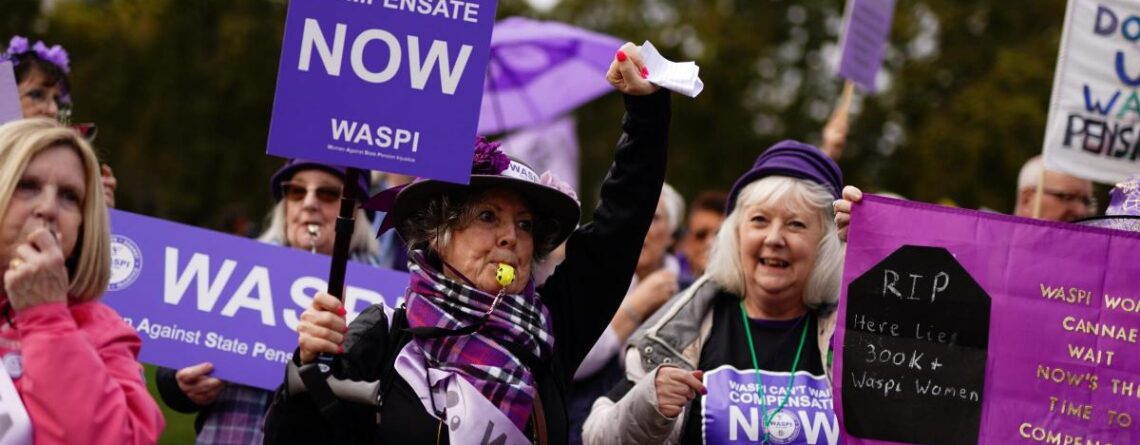UK. Labour Confirms No WASPI Compensation Despite Ombudsman Findings
The Labour government has announced that it will not provide compensation to WASPI (Women Against State Pension Inequality) campaigners, despite findings of maladministration by the Parliamentary and Health Service Ombudsman (PHSO). The decision comes after years of campaigning by women born in the 1950s, who argue that failures in state pension communication left them financially unprepared for increases to the state pension age.
While the government has accepted the ombudsman’s findings and apologised for delays in notifying affected women, it has ruled out compensation, citing the difficulty of identifying those who suffered financial losses and the potential cost of up to £10 billion.
Why WASPI Women Were Seeking Compensation
The WASPI campaign represents millions of women born in the 1950s who were affected by changes to the state pension age. Prior to reforms, women could claim their state pension at 60, but legislation passed in 1995 and 2011 gradually raised the age to 66, bringing it in line with men.
While the campaign does not oppose equalising the pension age, it argues that many women were not given enough notice, leaving them financially unprepared. The Parliamentary and Health Service Ombudsman (PHSO) investigated the issue and found that the Department for Work and Pensions (DWP) failed to adequately communicate the changes, constituting maladministration.
Campaigners have long called for compensation payments to reflect the financial hardship caused by the lack of proper notice. Many have struggled with lost retirement plans, job insecurity, and financial instability as a result. A proposed compensation figure of £2,950 per affected woman was suggested, but the government has refused to implement it.
Why the Government Has Rejected Compensation
Speaking in the House of Commons, Labour MP Sir Stephen Timms confirmed that while the government accepted the ombudsman’s findings, it does not believe compensation is justified.
“The Government have made and published their decision. We accepted the ombudsman’s finding of maladministration and apologised for the delay in writing to the women affected. We have started working with the ombudsman to make sure that lessons are learnt, and we will develop a plan for effective and timely state pension communication,” he said.
Timms also explained why Labour had chosen not to compensate affected women, stating:
“On the question of WASPI, we do not think that compensation is appropriate. The evidence is that 90% of those affected did know that a change was coming, but we cannot work out now who did and who did not know. Among those investigated by the ombudsman, nobody lost out financially from not knowing, so we could not justify paying out up to £10 billion in compensation. Instead, we are going to work to make sure that the problem never happens again.”
Instead of offering financial redress, Labour has committed to working with the ombudsman to prevent similar issues in the future, promising a better state pension communication strategy and a detailed report on lessons learned.
Reactions to the Decision
The refusal to offer compensation has sparked disappointment and frustration among campaigners and MPs. Some argue that Labour is failing to deliver the change it promised, particularly for older women who were disproportionately affected.
MP Brian Leishman expressed his concerns about public trust in politics, saying:
“It is fair to say that people are disillusioned with politics and politicians because they feel that things do not change—not for the better, anyway. The Tories would not compensate the WASPI women, and it looks like neither will we.”
He warned that failure to act could have wider political consequences, adding:
“My question is a pointed one: do the Secretary of State and the wider Government not realise that if we do not provide the positive change that we promised and improve living standards, the next Government could be a hard-line, far-right effort that looks to impoverish society further?”
Campaigners argue that without financial redress, many of the affected women will continue to struggle, particularly those who were forced into low-income work or early retirement due to the unexpected pension delays.
Read more @econostrum











